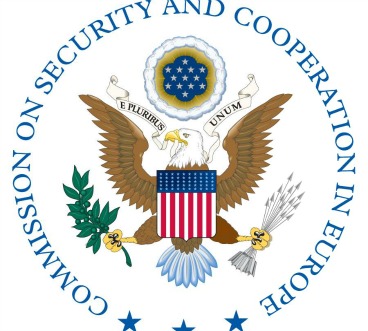Mr. SMITH of New Jersey. Madam Speaker, during the Holocaust, the Jews of Europe were subjected to persecution and, ultimately, targeted for total genocide–not only by foreign occupiers, but also at the hands of erstwhile friends and even their own governments. In the face of this atrocity, Bulgaria stands out for protecting its indigenous Jewish population from the evil machinery of the Holocaust. Despite official allied status with Nazi Germany, Bulgarian leaders, religious figures, intellectuals and average citizens resisted pressure from the Nazis to deport Bulgarian Jews to certain death in the concentration camps of Eastern Europe. Thanks to the compassion and courage of broad sectors of Bulgarian society, approximately 50,000 Jews survived the Holocaust.
Once an ally of Nazi Germany in March 1941, the Bulgarian Government and Parliament came under pressure from the Nazi regime and enacted legislation severely curtailing the rights of the Jewish population. In February 1943, a secret meeting between, Hitler’s envoy to Bulgaria, and Bulgaria’s Commissar on Jewish Affairs, established a timetable for exporting to Germany the Jews in Aegean Thrace and Macedonia, territories then under Bulgarian administration, and deportation of Jews from Bulgarian cities. The deportations were to begin on March 9, 1943.
Trains and boats to be used in the deportations were in place, and assembly points in Poland had already been selected when word of the plans was leaked. Almost immediately, 43 members of the Bulgarian Parliament led by Deputy Speaker Dimiter Peshev signed a petition to condemn this action. This, coupled with widespread public outcry from active citizens, political and professional organizations, intellectuals, and prominent leaders of the Bulgarian Orthodox Church, led the Minster of the Interior to stay the deportation orders. Later that month, Peshev again took a bold step in drafting a letter, signed by members of the ruling coalition, which condemned the possible deportation of Jews, calling this an “inadmissible act” with “grave moral consequences.”
In May 1943, the plan for deportation of the Bulgarian Jews was finally aborted. King Boris III resisted Nazi pressure to advance the plan, arguing that the Jews were an essential component of the workforce. While some 20,000 Jews from Sofia were then sent to work camps in the countryside for the remainder of the war and subjected to squalid conditions, they nevertheless survived.
Tragically, there was no such reversal of fate for the estimated 11,000 Jews from Aegean Thrace and Macedonia, who did not have the protection afforded by Bulgarian citizenship. Already driven from their homes in March 1943, these individuals were transported through Bulgarian territory to the Nazi death camps. Madam Speaker, this month marks the 60th anniversary of Bulgarian resistance to the Holocaust. The people deserve our commendation for their selfless efforts to preserve such a threatened religious community, and in fact, the number of Jews living in Bulgaria actually increased during the Holocaust.
Bulgaria’s record of tolerance was distorted by 40 years of communist misrule which culminated in the 1984-89 forcible assimilation campaign against its largest minority, the Turks. One of the first initiatives of the government following the fall of communism in November 1989 was the reversal of this brutal campaign. A return to the wholesale suppression of minority groups as exemplified by the forcible assimilation campaign is inconceivable today, and Bulgaria is a democracy that promotes respect for fundamental rights.
Last year, Bulgaria’s Ambassador to the United States, Elena Poptodorova, testified before the Helsinki Commission regarding the ongoing efforts of her government to promote tolerance, consistent with Bulgaria’s historical traditions.
I have been particularly encouraged by Bulgaria’s initiatives, in cooperation with leading non-governmental organizations, to promote the integration of Roma and non-Roma in schools. This work deserves the full support of the Bulgarian Government.
I am disappointed, however, that the Bulgarian Government has not yet adopted and implemented comprehensive anti-discrimination legislation, even though it pledged to do so in early 1999 in a platform of action on Roma issues, and committed to do so in the 1999 OSCE Istanbul Summit document. Four years have come and gone since Bulgaria made those pledges, and it is past time for those pledges to be honored.
I am hopeful the Bulgarian Government will do more to combat violence motivated by racial or religious intolerance. Two cases of such violence, against Romani Pentecostals in Pazardjik, appear to have received only superficial attention from the authorities.
Madam Speaker, I also was disappointed to learn of the recent passage of a new religion law in Bulgaria. Several drafts of a religion law had laid relatively dormant until the last months of 2002, when the process was expedited. As a result, it is my understanding that minority faith communities were excluded from the drafting process and assurances to have the Council of Europe review the text again were ignored. The law is prejudiced against certain religious groups and falls well short of Bulgaria’s OSCE commitments. The law also jeopardizes the legal status of the Orthodox synod not favored by the Government and its property holdings, as well as threatens fines for using the name of an existing religious organization without permission. New religious communities seeking to gain legal personality are now required to go through intrusive doctrinal reviews and cumbersome registration procedures, and co-religionists from abroad have been denied visas based on poorly written provisions.
Bulgaria’s leadership on these various issues would be welcomed, especially in light of their plans to serve as Chair-in-Office of the OSCE in 2004. The United States is particularly appreciative of Bulgaria’s firm stand against terrorism at this time, and we look forward to continued strong relations between our countries. The proud heritage stemming from the days of the Holocaust serves as a good reminder of the importance of taking stands which are right and true. Mr. Speaker, I am pleased that this Congress is able to recognize that heritage and historical fact.






